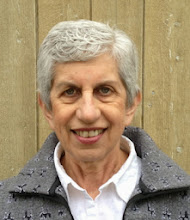
By looking at the latest brain research, we can begin to understand why. We tend to envision the near future as optimistic, and in addition, research has found that the brain tends to experience what it expects. One question is how do we find the people who have expectations like ours?
One of those places is within those of our own generation, to the time in history in which we were born. As Strauss and Howe point out in their theory of generations, we are very influenced by the generation (a period of approx. 22 years) into which we are born and with whom we experience historic happenings. (See Signs of the Times 0805).
Other theories refer to family placement: first born, last born, middle child etc. as shaping what we believe others expect to don't expect of us. "The basic idea is that people who grow up in the same sibling position predictably have important common characteristics." There is a natural order in families where the older children are leaders over the younger children. If things are relatively normal in the family they carry these expectations into their relationships and marriages. If the parents in some way exaggerate or distort these roles, such as by demanding way too much of the older child, his or her expectations of him or herself and the future will change.
The list of what causes us to expect what we do can go on. Advertizing tells stories about what is desirable and what is less desirable. Past experience and the experiences of others shape what to some degree what we expect.
Our way of handling change influences the expectations we have for the future, some of us are happy with the security of keeping things just as they are, some of us thrive on change and others like change in moderate doses. Foresight Styles and Innovation Diffusion are related theories of how change is made.
Still, we are told that with practice we can consciously control and choose what we wish to expect. Years ago I lost a good friend because she had expectations that, in her view, I didn't live up to. If she had realized that those were her expectations and not mine we might still be friends today. If I had expected that it was within the realm of possibility to be asked out for New Years Eve by a certain young man in my life it might have changed any number of things. Are we prisoners of our expectations, or can we consciously change them and therefore change our lives?
One of those places is within those of our own generation, to the time in history in which we were born. As Strauss and Howe point out in their theory of generations, we are very influenced by the generation (a period of approx. 22 years) into which we are born and with whom we experience historic happenings. (See Signs of the Times 0805).
Other theories refer to family placement: first born, last born, middle child etc. as shaping what we believe others expect to don't expect of us. "The basic idea is that people who grow up in the same sibling position predictably have important common characteristics." There is a natural order in families where the older children are leaders over the younger children. If things are relatively normal in the family they carry these expectations into their relationships and marriages. If the parents in some way exaggerate or distort these roles, such as by demanding way too much of the older child, his or her expectations of him or herself and the future will change.
The list of what causes us to expect what we do can go on. Advertizing tells stories about what is desirable and what is less desirable. Past experience and the experiences of others shape what to some degree what we expect.
Our way of handling change influences the expectations we have for the future, some of us are happy with the security of keeping things just as they are, some of us thrive on change and others like change in moderate doses. Foresight Styles and Innovation Diffusion are related theories of how change is made.
Still, we are told that with practice we can consciously control and choose what we wish to expect. Years ago I lost a good friend because she had expectations that, in her view, I didn't live up to. If she had realized that those were her expectations and not mine we might still be friends today. If I had expected that it was within the realm of possibility to be asked out for New Years Eve by a certain young man in my life it might have changed any number of things. Are we prisoners of our expectations, or can we consciously change them and therefore change our lives?

